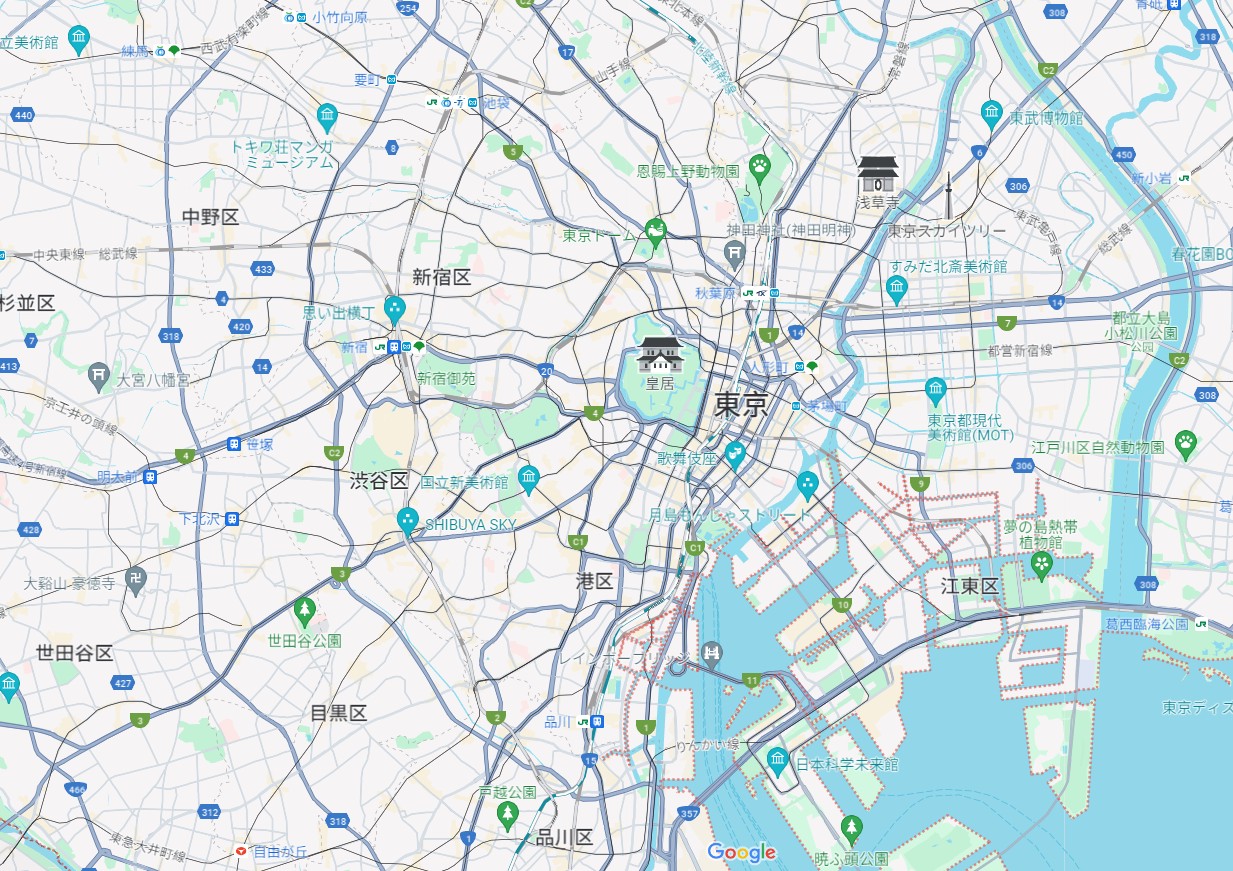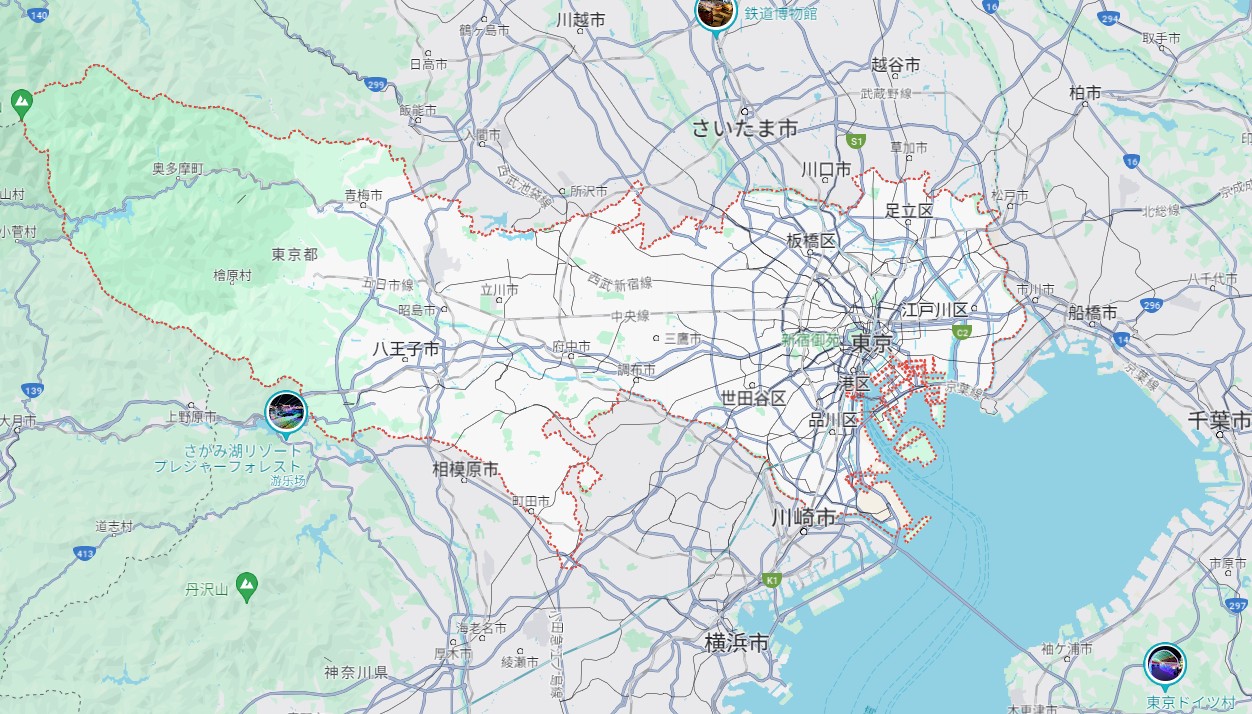中文版
东京介绍
东京是日本的首都,也是日本的政治、经济、文化和国际交流中心。以下是对东京的详细介绍,包括其地理位置、人口、经济、教育、文化和主要景点。
地理位置
东京位于日本关东地区的南部,地理坐标大致为北纬35度41分,东经139度46分。东京东临东京湾,西接埼玉县,南界神奈川县,北邻千叶县。东京的地形多样,包括市中心的平原地区和周边的山地、丘陵。
人口
根据最新数据,东京都人口约为1400万。作为日本最大的城市,东京人口高度密集,具有显著的多样性。东京不仅是日本本国居民的聚集地,也吸引了大量来自世界各地的移民和留学生,形成了丰富的多元文化。

经济
东京是全球最重要的经济中心之一,其经济发展水平在世界范围内位居前列。东京的经济以金融、制造、信息技术和服务业为主,形成了高度发达的经济结构。
- 金融业:东京是世界主要金融中心之一,拥有东京证券交易所、三菱日联金融集团、瑞穗金融集团等重要金融机构。
- 制造业:东京及其周边地区是日本的制造业核心,涵盖汽车、电子、精密仪器等多个领域。丰田、索尼、佳能等著名企业在此设有总部或研发中心。
- 信息技术产业:东京是日本信息技术和科技创新的重要基地,秋叶原被誉为“电器街”,集中了大量的电子产品和科技公司。
- 旅游业:东京是全球重要的旅游目的地,每年吸引大量的国内外游客,旅游业对东京经济贡献显著。
教育
东京拥有众多知名的教育机构,是日本的高等教育和科研中心。
- 东京大学:成立于1877年,是日本最顶尖的大学之一,在世界大学排名中名列前茅,擅长理工科和人文学科。
- 早稻田大学:成立于1882年,以其优秀的文科和商科著称,培养了众多日本社会精英。
- 庆应义塾大学:成立于1858年,是日本历史最悠久的私立大学之一,医学、法学和经济学等学科实力雄厚。
- 东京工业大学:以工程学、科学技术研究而闻名,是日本理工科领域的领先机构。
文化
东京是日本的文化中心,拥有丰富的历史文化和现代文化。
- 历史文化:东京有着悠久的历史,从江户时代开始成为日本的政治和文化中心,拥有皇居、浅草寺、上野公园等众多历史文化遗址。
- 现代文化:东京是全球流行文化的发源地之一,时尚、动漫、音乐等方面影响深远,涩谷、原宿、银座等地是年轻人和时尚爱好者的聚集地。
- 美食:东京的饮食文化丰富多样,从传统的寿司、天妇罗到现代的创意料理,东京拥有众多米其林星级餐厅,被誉为“美食之都”。
主要景点
东京拥有许多著名的旅游景点,每年吸引大量游客。
- 东京塔:东京塔是东京的标志性建筑之一,提供了俯瞰全市的壮丽景观。
- 浅草寺:浅草寺是东京最古老、最著名的佛教寺庙之一,每年吸引大量参拜者和游客。
- 东京迪士尼乐园:东京迪士尼乐园是全球知名的主题公园,深受家庭游客和年轻人的喜爱。
- 新宿御苑:新宿御苑是东京市中心的一个大型公园,以其美丽的景色和宁静的环境吸引了众多游客。
- 皇居:皇居是日本天皇的居住地,周围的皇居东御苑和皇居外苑是市民和游客休闲的好去处。
总结
东京作为日本的首都和重要城市,在政治、经济、文化和教育等方面具有重要地位。东京以其丰富的历史文化遗产、现代化的城市景观和多元化的发展模式,吸引着世界各地的人们前来旅游、工作和生活。

英文版
Introduction to Tokyo
Tokyo is the capital of Japan and serves as the country’s political, economic, cultural, and international exchange center. Here is a detailed introduction to Tokyo, including its geographical location, population, economy, education, culture, and main attractions.
Geographical Location
Tokyo is located in the southern part of the Kanto region of Japan, with geographical coordinates approximately at 35°41′N latitude and 139°46′E longitude. Tokyo is bordered by Tokyo Bay to the east, Saitama Prefecture to the west, Kanagawa Prefecture to the south, and Chiba Prefecture to the north. The city’s terrain is diverse, with the central area being mostly flat and surrounded by mountains and hills.
Population
According to the latest data, Tokyo has a population of about 14 million. As the largest city in Japan, Tokyo is densely populated and highly diverse. It attracts a large number of immigrants and students from around the world, creating a rich multicultural environment.
Economy
Tokyo is one of the world’s most important economic centers, with its economic development level ranking among the top globally. Tokyo’s economy is primarily based on finance, manufacturing, information technology, and services, forming a highly developed economic structure.
- Finance: Tokyo is a major global financial center, home to the Tokyo Stock Exchange, Mitsubishi UFJ Financial Group, Mizuho Financial Group, and other key financial institutions.
- Manufacturing: Tokyo and its surrounding areas are the core of Japan’s manufacturing industry, encompassing automobiles, electronics, precision instruments, and more. Renowned companies like Toyota, Sony, and Canon have their headquarters or R&D centers here.
- Information Technology: Tokyo is a significant base for information technology and technological innovation in Japan. Akihabara, known as “Electric Town,” is a hub for electronic products and tech companies.
- Tourism: Tokyo is a major global tourist destination, attracting numerous domestic and international visitors each year, significantly contributing to its economy.
Education
Tokyo hosts numerous prestigious educational institutions and is a center for higher education and research in Japan.
- University of Tokyo: Established in 1877, it is one of Japan’s top universities, highly ranked globally, excelling in both sciences and humanities.
- Waseda University: Founded in 1882, it is renowned for its humanities and business programs and has produced many of Japan’s elite.
- Keio University: Established in 1858, it is Japan’s oldest private university, strong in fields like medicine, law, and economics.
- Tokyo Institute of Technology: Known for its engineering and scientific research, it is a leading institution in Japan’s STEM fields.
Culture
Tokyo is Japan’s cultural hub, offering a wealth of historical and modern cultural experiences.
- Historical Culture: With a history dating back to the Edo period, Tokyo has numerous historical sites such as the Imperial Palace, Senso-ji Temple, and Ueno Park.
- Modern Culture: Tokyo is a global trendsetter in fashion, anime, and music. Districts like Shibuya, Harajuku, and Ginza are hotspots for young people and fashion enthusiasts.
- Cuisine: Tokyo boasts a diverse and rich food culture, from traditional sushi and tempura to modern creative cuisine. It is home to many Michelin-starred restaurants and is considered a “food capital.”
Main Attractions
Tokyo features many famous tourist attractions that draw millions of visitors annually.
- Tokyo Tower: A landmark of Tokyo, offering panoramic views of the city.
- Senso-ji Temple: Tokyo’s oldest and most famous Buddhist temple, attracting numerous worshippers and tourists.
- Tokyo Disneyland: A globally renowned theme park popular among families and young people.
- Shinjuku Gyoen: A large park in central Tokyo, known for its beautiful scenery and tranquil environment.
- Imperial Palace: The residence of the Emperor of Japan, surrounded by the Imperial Palace East Gardens and Outer Gardens, popular for leisure and sightseeing.
Conclusion
As Japan’s capital and a major city, Tokyo holds significant importance in politics, economy, culture, and education. Tokyo attracts people from around the world for its rich historical heritage, modern urban landscape, and diverse development model, making it a leading global metropolis.
后记
2024年7月6日14点07分于上海,基于GPT4o大模型生成。
到此这篇中英双语介绍日本东京(Tokyo)的文章就介绍到这了,更多相关内容请继续浏览下面的相关推荐文章,希望大家都能在编程的领域有一番成就!版权声明:
本文来自互联网用户投稿,该文观点仅代表作者本人,不代表本站立场。本站仅提供信息存储空间服务,不拥有所有权,不承担相关法律责任。
如若内容造成侵权、违法违规、事实不符,请将相关资料发送至xkadmin@xkablog.com进行投诉反馈,一经查实,立即处理!
转载请注明出处,原文链接:https://www.xkablog.com/hdkf/10528.html
